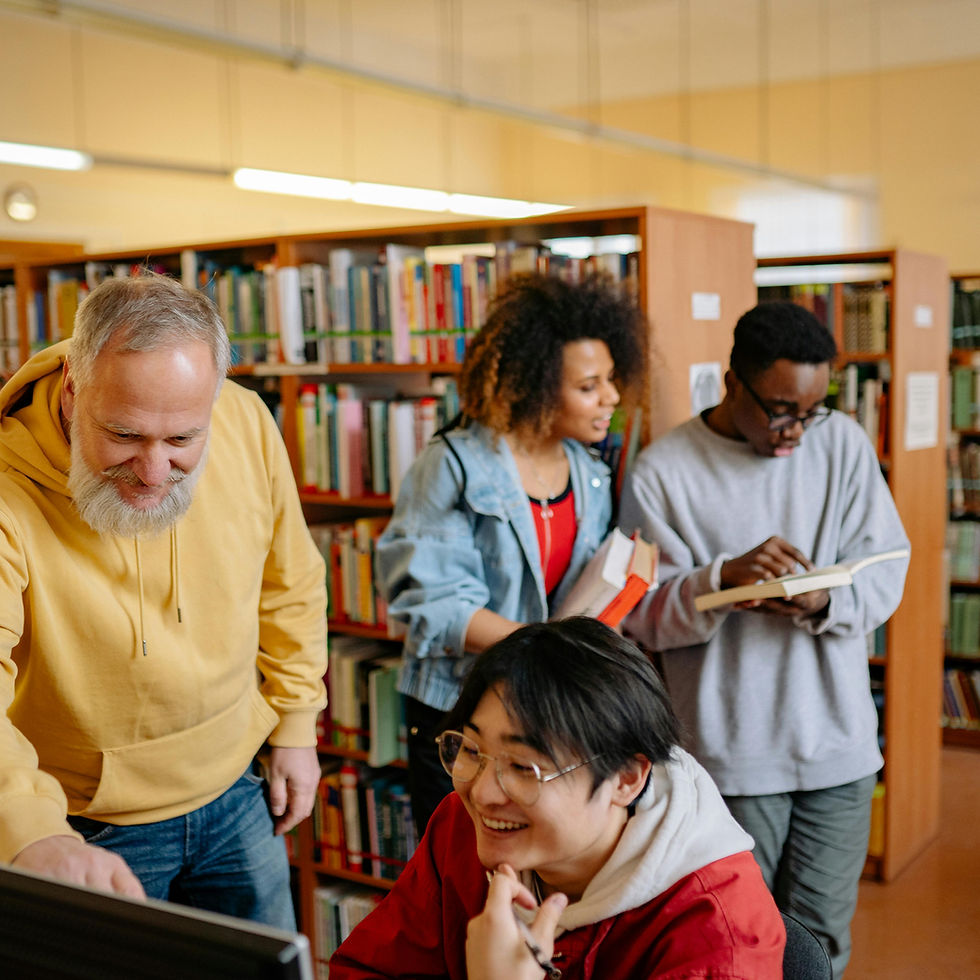Essential Soft Skills for Schoolteachers: Building Blocks for Success
- MUGESH

- May 26, 2024
- 3 min read
In the world of education, teachers are often celebrated for their expertise in subjects like math, science, or literature. However, there's another set of skills that are just as critical for success in the classroom: soft skills. These interpersonal abilities are crucial for creating a positive learning environment, fostering student engagement, and managing the myriad challenges that arise in educational settings. Here’s a look at the essential soft skills every schoolteacher should cultivate.

1. Communication Skills
Effective communication is the cornerstone of teaching. This isn't just about delivering lectures or giving instructions; it's about engaging in meaningful dialogue with students, parents, and colleagues. Great teachers listen actively, provide clear and concise explanations, and adapt their communication style to meet the needs of their audience.
Why It Matters: Clear communication helps students understand complex concepts, fosters trust, and encourages open dialogue. It also ensures that parents are well-informed about their child's progress and that teachers can collaborate effectively with their peers.
2. Empathy
Empathy involves understanding and sharing the feelings of others. For teachers, this means being attuned to the emotional and social needs of their students. Empathetic teachers can create a supportive classroom environment where students feel valued and understood.
Why It Matters: When students feel that their teachers genuinely care about them, they are more likely to be motivated, engaged, and willing to take risks in their learning. Empathy also helps in managing classroom conflicts and supporting students through personal challenges.
3. Patience
Teaching is a demanding profession that requires immense patience. Students learn at different paces and have diverse needs, and teachers must remain calm and composed, even in challenging situations. Patience allows teachers to provide individualized support and to persistently work towards educational goals despite obstacles.
Why It Matters: Patience helps in maintaining a positive classroom atmosphere, reduces stress, and models important behavior for students. It also enables teachers to give each student the time they need to grasp new concepts.
4. Adaptability
Classrooms are dynamic environments where things can change rapidly. Teachers who are adaptable can respond to unexpected challenges, such as technical difficulties, curriculum changes, or behavioral issues, with ease and creativity.
Why It Matters: Adaptable teachers are better equipped to handle the unpredictability of the classroom, ensuring that learning continues smoothly. This flexibility also allows them to incorporate new teaching methods and technologies effectively.
5. Collaboration
Teaching is not a solitary endeavor. Successful teachers often work closely with other educators, school staff, and parents. Strong collaboration skills are essential for developing cohesive lesson plans, sharing resources, and creating a unified approach to student development.
Why It Matters: Collaboration enhances the learning experience by bringing diverse perspectives and expertise into the classroom. It also fosters a sense of community and support among educators, which is vital for professional growth and job satisfaction.
6. Conflict Resolution
Conflicts are inevitable in any group setting, and classrooms are no exception. Effective conflict resolution skills enable teachers to address disputes between students or even between students and teachers calmly and constructively.
Why It Matters: Resolving conflicts quickly and fairly prevents disruptions to learning and helps maintain a positive and respectful classroom environment. It also teaches students valuable skills in negotiation and problem-solving.
7. Cultural Competence
In today’s diverse world, cultural competence is more important than ever. Teachers must be aware of and sensitive to the cultural backgrounds and experiences of their students. This includes understanding different cultural norms, values, and communication styles.
Why It Matters: Cultural competence promotes inclusivity and equity in the classroom. It helps teachers connect with all students, respecting their unique identities and experiences, which in turn supports better academic and social outcomes.
Conclusion
While academic knowledge is essential for teaching, soft skills are the glue that holds the educational process together. By honing skills like communication, empathy, and adaptability, teachers can create nurturing, effective, and dynamic learning environments. These soft skills not only enhance the educational experience for students but also contribute to a more fulfilling and sustainable teaching career. Whether you’re a seasoned educator or just starting your journey in teaching, investing in these soft skills will pay dividends in the success and well-being of both you and your students.





Comments